The 7 Worst Desserts for Diabetes, Say Dietitians
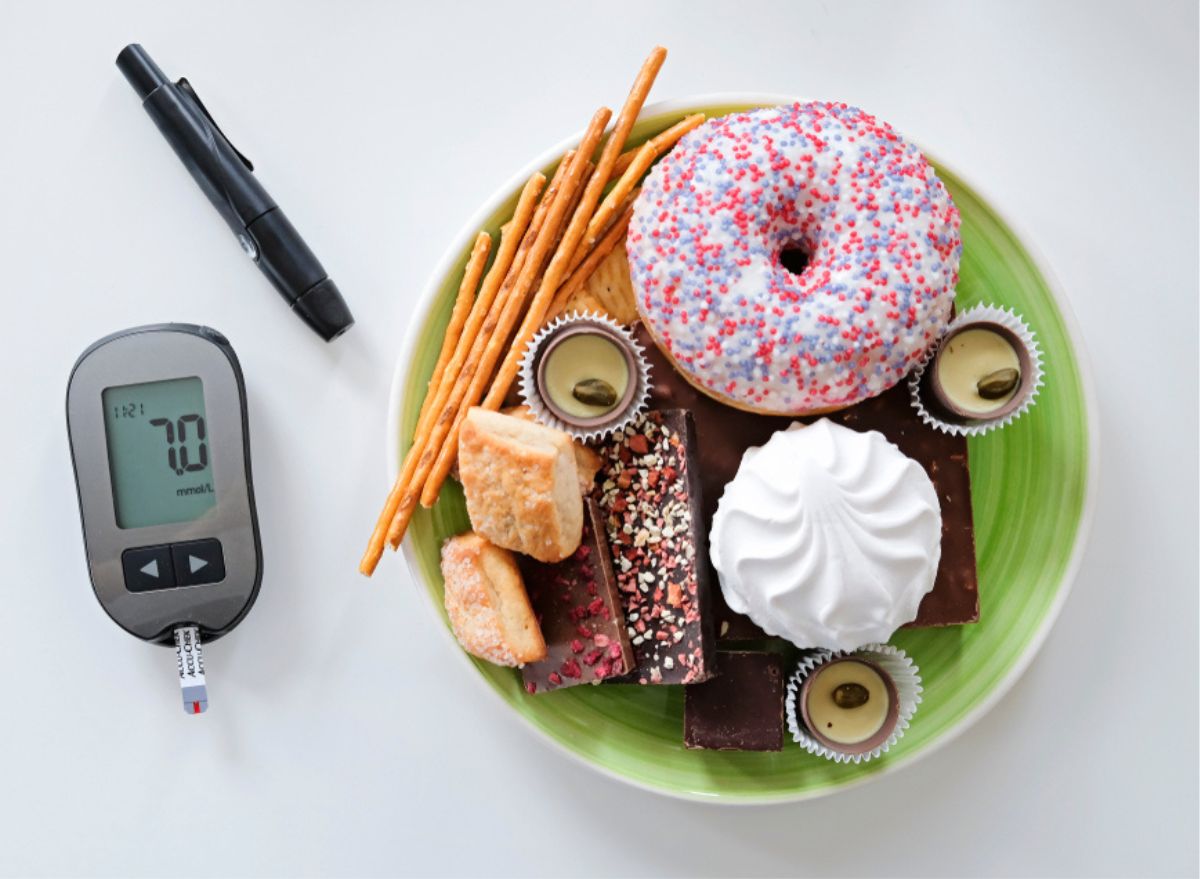
Carbohydrates are a very important macronutrient that most people with diabetes keep a close eye on when eating.
"A person with diabetes does need to be more mindful of the type of carbohydrates they choose to consume, as each source of carbohydrate is digested by the body differently and has a different effect on how quickly it hits a person's bloodstream and causes their blood sugar to spike," says Roxana Ehsani, MS, RD, CSSD, LDN and National Media Spokesperson for the Academy of Nutrition and Dietetics.
She explains that for example, whole grains, fruits, vegetables, and legumes are all complex carbohydrates, meaning it takes longer for our body to break down and digest them, and provides us with a steady release of energy over time (a slow release of glucose into our bloodstream).
"However, simple carbohydrates typically found in white bread, white pasta, sugary cereals, desserts, juice, candy, and ice creams get digested by the body a lot quicker and hit our bloodstream a lot faster than complex carbohydrates, and can cause a quicker spike in blood sugar," says Ehsani.
That means that many types of dessert can quickly make things go south for diabetics, which is why Ehsani adds that anyone with diabetes needs to limit added sugar in their diet and choose more complex carbohydrates over simple ones (unless you're having a low blood sugar episode).
Jonathan Valdez, RDN, owner of Genki Nutrition and a spokesperson for the New York State Academy of Nutrition and Dietetics, adds that "it is recommended that people with diabetes have consistent carbohydrate intake and try to avoid consuming just simple carbohydrates by themselves, as well as making sure they have enough fiber and protein."
However, sugar isn't completely evil for people with diabetes–it just depends on a few factors.
"Sugar isn't necessarily 'bad' for people with diabetes, but quantity, quality, timing, and food combinations matter very much," says Silvia Carli, MS, RD, CSCS, registered dietitian with 1AND1. "People with diabetes have a decreased sensitivity to insulin, meaning that cells in their bodies have a harder time bringing in sugar in the blood and converting it into energy."
Carli adds that the health risks of having chronic high blood sugar levels can lead to atherosclerosis, heart disease, stroke, and issues with nerves, eyes, and kidneys.
To keep your blood sugar steady and under control (and prevent spikes and dips), here are 7 of the worst desserts for diabetes to be aware of, according to dietitians. Then for more healthy eating tips make sure to check out Healthy Lunch Ideas for High Blood Sugar.
Candy
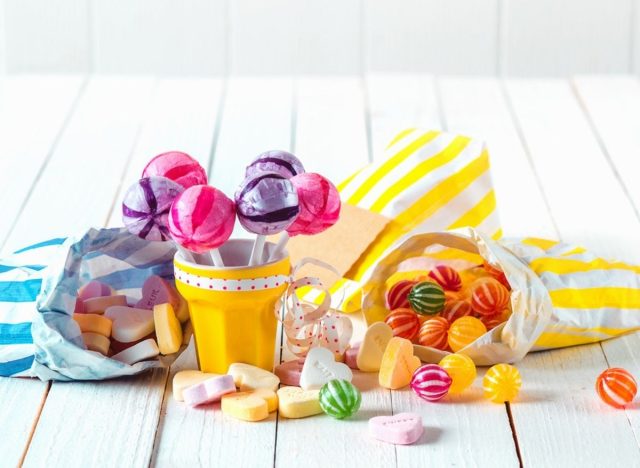
You can find it practically anywhere–but even sugar-free candy options are not great for diabetics.
"Candy is typically just sugar, and it usually doesn't have much fat, fiber, or protein–therefore once a person consumes their favorite lollipop or gummy bears for example, the sugar in that candy will be quickly absorbed by the body and will spike the person's blood sugar," says Ehsani.
She suggests that it's always best to check the nutritional facts on a box or bag of candy you are purchasing.
"You will notice it is high in total carbohydrates, which mainly come from sugar. Even sugar-free candies should be avoided for anyone with diabetes, as it may be sugar-free but still composed mainly of carbohydrates, which will still go straight into their bloodstream and spike it," says Ehsani.
Ice cream
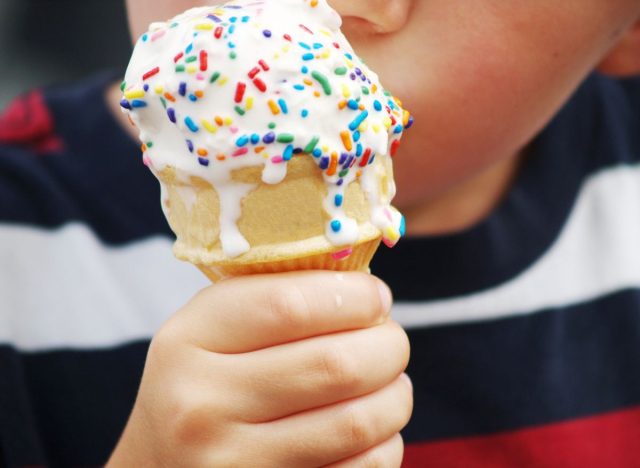
"Ice cream is high in sugar and fat, and low in both protein and fiber," says Valdez. "The fat content will delay a spike in sugars just a little bit. However, it may be tricky for people who are on insulin if this is consumed alone."
If you're really craving ice cream, try some blood-sugar-friendly options that come with less sugar and a bit more protein.
Scones
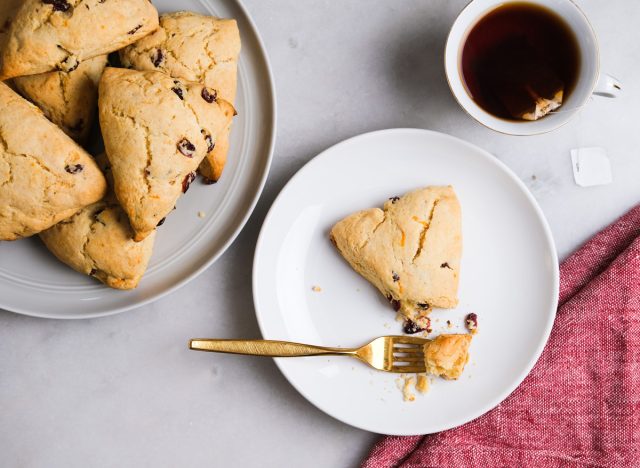
If ordering a buttery scone at your local bakery or coffee shop is your go-to coffee pairing, it could be terrible for your diabetes.
"That scone is not only loaded with simple carbohydrates (white flour and sugar), but it also contains lots of butter, which is very high in saturated fat. For anyone with diabetes this combo isn't the healthiest option–as people with diabetes are more susceptible to developing heart disease, and may also have additional comorbidities like high cholesterol or high blood pressure," says Ehsani. "Consuming a butter-rich pastry will not help support an overall healthy heart and its surrounding arteries. It's best to skip a scone, maybe try to make a healthier version using whole grains and less butter."
Juices
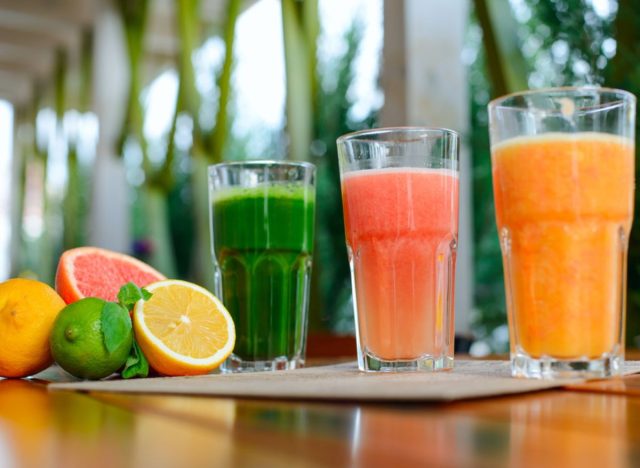
"Juices are typically high in carbohydrates, which will raise your blood sugars immediately," says Valdez. "They are best to have around only if you are experiencing a lot of low sugars (hypoglycemia)."
Cakes
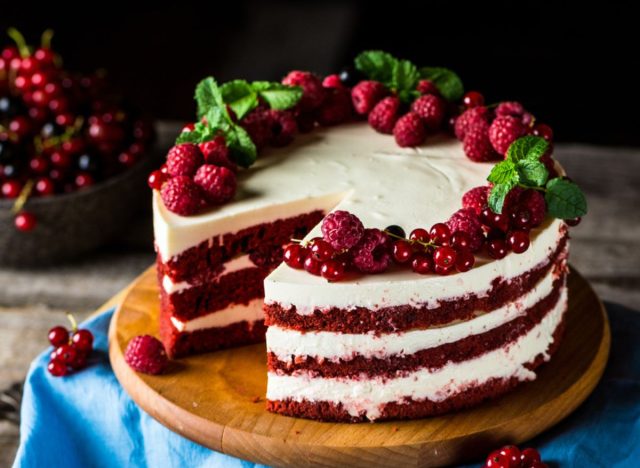
Moist, sweet and loaded with frosting–cake is one of the most decadent desserts you can have, which also makes it tricky for diabetes.
"Cakes are loaded not only with sugar, but also contain fillings like creams, custard, plus in addition icings and frostings on top. All of these are loaded with sugar, and unhealthy saturated fats," says Ehsani. "Both of these components aren't ideal to be consumed regularly with a person with diabetes, so it's best to limit cake just to special occasions like birthdays, as some cakes could also be sky high in total calories too–which doesn't support a healthy diet for anyone with diabetes."
Cinnamon rolls and honeybuns
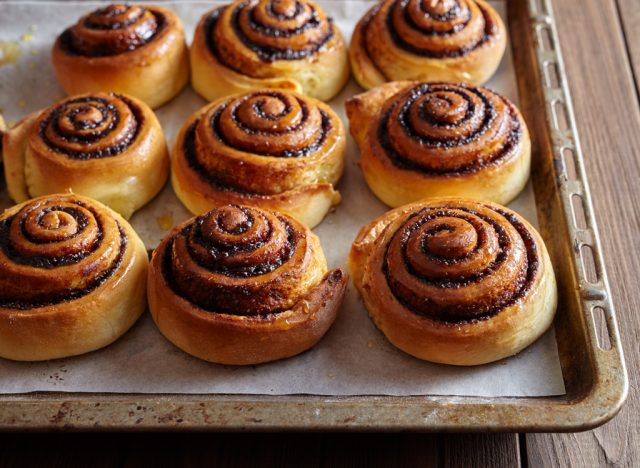
"Cinnamon rolls and honeybuns are made with sugar and refined flour and are covered in icing that will quickly spike blood sugar levels," says Carli.
Donuts
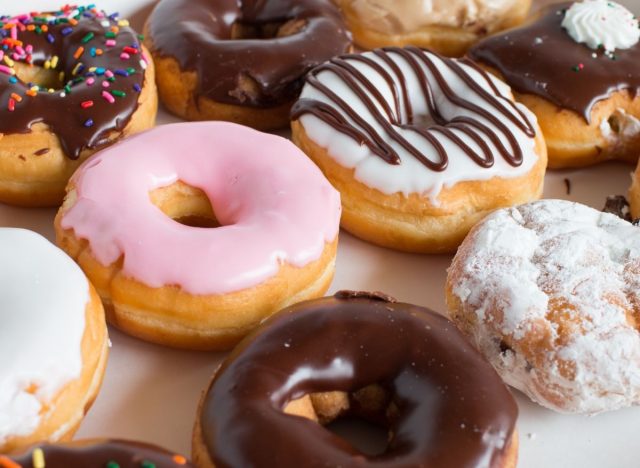
"Donuts (and most pastries) are another high sugar and fat food that may be low in protein and fiber–and while the fat delays blood sugar spikes, these pastries are not a good pick for people with diabetes," says Valdez.









